The Gulf Watch Alaska ecosystem monitoring program functions with the oversight of both internal and external scientific review panels. The internal science review panel consists of five distinguished scientists with extensive research and publication experience in fisheries, oceanography, and marine ecology as well as research program management expertise. The external science panel reviews proposals, work plans, and other deliverables in support of the Exxon Valdez Oil Spill Trustee Council.
Dr. Sherri Dressel
Statewide Herring Fisheries Scientist, Alaska Department of Fish and Game, Division of Commercial Fisheries
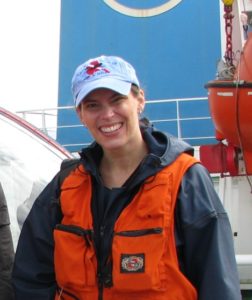 Dr. Sherri Dressel received her Ph.D. in Fisheries Oceanography and M.S. in Statistics from the University of Alaska Fairbanks. She has worked for ADF&G since 2004 and has served as the Statewide herring fisheries scientist since 2012. In her current position, Dr. Dressel conducts herring stock assessments and provides statewide oversight on Pacific herring research, stock assessment, and harvest rate strategies. In addition, Dr. Dressel currently serves as co-chair of the Science and Statistical Committee of the North Pacific Fisheries Management Council. From 2008 to 2012, she served as the Biometrics Supervisor for the Commercial Fisheries Division in Southeast Alaska, overseeing the survey designs, sampling plans, and stock assessments for groundfish, herring, salmon, shellfish, and dive fisheries. She serves on the Dive Safety Board for ADF&G and is a member of the ADF&G scuba dive team for underwater research and monitoring.
Dr. Sherri Dressel received her Ph.D. in Fisheries Oceanography and M.S. in Statistics from the University of Alaska Fairbanks. She has worked for ADF&G since 2004 and has served as the Statewide herring fisheries scientist since 2012. In her current position, Dr. Dressel conducts herring stock assessments and provides statewide oversight on Pacific herring research, stock assessment, and harvest rate strategies. In addition, Dr. Dressel currently serves as co-chair of the Science and Statistical Committee of the North Pacific Fisheries Management Council. From 2008 to 2012, she served as the Biometrics Supervisor for the Commercial Fisheries Division in Southeast Alaska, overseeing the survey designs, sampling plans, and stock assessments for groundfish, herring, salmon, shellfish, and dive fisheries. She serves on the Dive Safety Board for ADF&G and is a member of the ADF&G scuba dive team for underwater research and monitoring.
Dr. Terrie Klinger
Lowell A. and Frankie L. Wakefield Endowed Professor, School of Marine and Environmental Affairs, UW
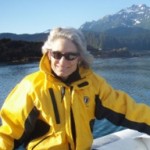 Dr. Klinger is a Professor of Marine and Environmental Affairs, Adjunct Professor of Aquatic & Fishery Sciences, and Co-Director of the Washington Ocean Acidification Center at UW. She holds a Ph.D. in biological oceanography from the Scripps Institution of Oceanography, an M.S. in botany from the University of British Columbia, and a B.A. in biology from the University of California, Berkeley. Her research focuses on ecological response to changing ocean conditions in nearshore habitats. She serves on advisory bodies including the Ecosystem Advisory Subpanel of the Pacific Fisheries Management Council and Western Washington University’s Salish Sea Institute.
Dr. Klinger is a Professor of Marine and Environmental Affairs, Adjunct Professor of Aquatic & Fishery Sciences, and Co-Director of the Washington Ocean Acidification Center at UW. She holds a Ph.D. in biological oceanography from the Scripps Institution of Oceanography, an M.S. in botany from the University of British Columbia, and a B.A. in biology from the University of California, Berkeley. Her research focuses on ecological response to changing ocean conditions in nearshore habitats. She serves on advisory bodies including the Ecosystem Advisory Subpanel of the Pacific Fisheries Management Council and Western Washington University’s Salish Sea Institute.
Dr. Steve Martell
Quantitative Fisheries Science at Sea State Inc.
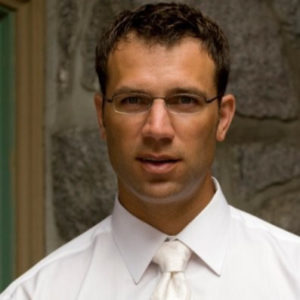 Dr. Martell received his Ph.D. from the University of British Columbia. His Academic career spans from 2002 to 2012 where he published in the fields of fisheries science, stock assessment, fisheries economics, and applied ecology. Dr. Martell also conducted research on harvest policy for the International Pacific Halibut Commission before moving on to working as an independent scientist at Sea State Incorporated. He served on the North Pacific Fisheries Management Council’s Scientific and Statistical Committee from 2012 to 2016 and currently serves on the Western Pacific Fisheries Management Councils’ Scientific and Statistic Committee. In 2012, he was appointed to the Canadian Research Chair in Quantitative Fisheries Science, Natural Sciences, and Engineering Research Council of Canada. His research interests focus on using real-time data to improve fisheries efficiency, improving stock-assessment information through industry collaboration and research, and effective harvest policies that quickly adapt to changes in ecosystem production and function.
Dr. Martell received his Ph.D. from the University of British Columbia. His Academic career spans from 2002 to 2012 where he published in the fields of fisheries science, stock assessment, fisheries economics, and applied ecology. Dr. Martell also conducted research on harvest policy for the International Pacific Halibut Commission before moving on to working as an independent scientist at Sea State Incorporated. He served on the North Pacific Fisheries Management Council’s Scientific and Statistical Committee from 2012 to 2016 and currently serves on the Western Pacific Fisheries Management Councils’ Scientific and Statistic Committee. In 2012, he was appointed to the Canadian Research Chair in Quantitative Fisheries Science, Natural Sciences, and Engineering Research Council of Canada. His research interests focus on using real-time data to improve fisheries efficiency, improving stock-assessment information through industry collaboration and research, and effective harvest policies that quickly adapt to changes in ecosystem production and function.
Dr. Stanley ‘Jeep’ Rice
Scientist Emeritus, NOAA Alaska Fisheries Science Center, Auke Bay Laboratory
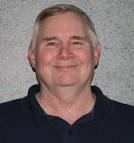 Dr. Rice received his Ph.D. in comparative physiology and toxicology from Kent State University, and a B.S./M.S. in biological science from Chico State University. He started his career with NOAA in 1971 as a biologist and was assigned to work on the environmental impact statement for the pending Trans-Alaska Pipeline and to start a new program in oil toxicology that would be relevant to Alaska fisheries issues and form the cornerstone of lingering oil studies for the EVOSTC. He worked for over 40 years with NOAA’s National Marine Fisheries Service studying nearshore and marine ecosystems in the Gulf of Alaska and Prince William Sound. His many published works provide the foundation for the Gulf Watch Alaska long-term monitoring program, focused on the impacts of the Exxon Valdez Oil Spill to nearshore communities. Dr. Rice recently retired and continues to serve in an advisory capacity to researchers for the Herring Research and Monitoring program, Gulf Watch Alaska program, as well as students studying Alaskan nearshore ecology.
Dr. Rice received his Ph.D. in comparative physiology and toxicology from Kent State University, and a B.S./M.S. in biological science from Chico State University. He started his career with NOAA in 1971 as a biologist and was assigned to work on the environmental impact statement for the pending Trans-Alaska Pipeline and to start a new program in oil toxicology that would be relevant to Alaska fisheries issues and form the cornerstone of lingering oil studies for the EVOSTC. He worked for over 40 years with NOAA’s National Marine Fisheries Service studying nearshore and marine ecosystems in the Gulf of Alaska and Prince William Sound. His many published works provide the foundation for the Gulf Watch Alaska long-term monitoring program, focused on the impacts of the Exxon Valdez Oil Spill to nearshore communities. Dr. Rice recently retired and continues to serve in an advisory capacity to researchers for the Herring Research and Monitoring program, Gulf Watch Alaska program, as well as students studying Alaskan nearshore ecology.
Dr. Mike Sigler
NOAA Alaska Fisheries Science Center (retired)
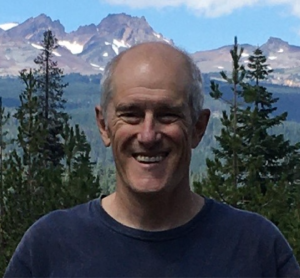 Dr. Mike Sigler has more than 30 years of research experience in Alaska in Marine Ecology and Fisheries Stock Assessment. He currently teaches the class “Ecosystem Research and Management” at the Shoals Marine Lab in the Gulf of Maine and collaborates on research in Alaska (e.g., Chukchi Sea ice algae). Prior to retiring in 2017, he led the NOAA Alaska Fisheries Science Center, Habitat and Ecological Process Research Program, which included integrated ecosystem research programs in the Bering and Chukchi seas and ocean acidification research. He was the Lead PI of the Bering Sea Integrated Ecosystem Research Program funded by the North Pacific Research Board, which won a U.S. Department of Commerce Gold Medal Award. Mike also has led Steller sea lion prey and predation studies, the Alaska sablefish stock assessment, and the Alaska sablefish longline survey. He has chaired stock assessment review panels for Alaska, New England, and West Coast fisheries, was an analyst for a National Research Council review of stock assessment methods and has advised Azorean and New Zealand stock assessment scientists. His publications span several fish, seabird, and marine mammal species (e.g., Steller sea lion, Pacific sleeper shark, black-legged kittiwake) and trophic levels (e.g., seasonal phytoplankton blooms, deep sea coral). Mike has spent over 800 days at sea and has been chief scientist on over 30 research cruises in Alaska. He earned a B.S. with Honors and an M.S. from Cornell University and a Ph.D. from UW.
Dr. Mike Sigler has more than 30 years of research experience in Alaska in Marine Ecology and Fisheries Stock Assessment. He currently teaches the class “Ecosystem Research and Management” at the Shoals Marine Lab in the Gulf of Maine and collaborates on research in Alaska (e.g., Chukchi Sea ice algae). Prior to retiring in 2017, he led the NOAA Alaska Fisheries Science Center, Habitat and Ecological Process Research Program, which included integrated ecosystem research programs in the Bering and Chukchi seas and ocean acidification research. He was the Lead PI of the Bering Sea Integrated Ecosystem Research Program funded by the North Pacific Research Board, which won a U.S. Department of Commerce Gold Medal Award. Mike also has led Steller sea lion prey and predation studies, the Alaska sablefish stock assessment, and the Alaska sablefish longline survey. He has chaired stock assessment review panels for Alaska, New England, and West Coast fisheries, was an analyst for a National Research Council review of stock assessment methods and has advised Azorean and New Zealand stock assessment scientists. His publications span several fish, seabird, and marine mammal species (e.g., Steller sea lion, Pacific sleeper shark, black-legged kittiwake) and trophic levels (e.g., seasonal phytoplankton blooms, deep sea coral). Mike has spent over 800 days at sea and has been chief scientist on over 30 research cruises in Alaska. He earned a B.S. with Honors and an M.S. from Cornell University and a Ph.D. from UW.
